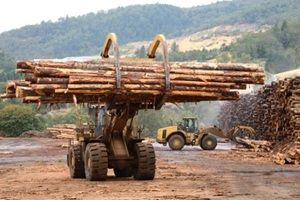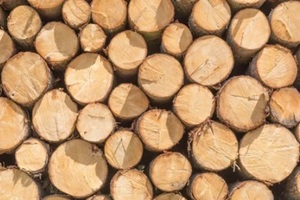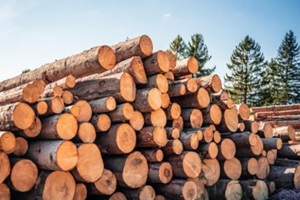
Logging operations inherently entail exposure to a range of risks, including machinery breakdowns and workplace injuries. However, natural disasters bring challenges of a much larger magnitude. Wildfires, floods, hurricanes, or ice storms can destroy valuable equipment, harm timber stands, and halt business activities for weeks or even months.
Logging insurance is designed to provide a financial safety net in the event of such occurrences. It allows businesses to recover more quickly by covering repair costs, income loss, liability claims, and more. For companies relying on uninterrupted operations and valuable timber or equipment, proper insurance can determine survival after a disaster.
This article examines how insurance choices aid recovery from natural events.
What Logging Insurance Typically Covers
Logging insurance is a specialized policy that combines multiple types of commercial insurance into a single package specifically for timber harvesting businesses. This coverage is imperative for businesses in regions prone to natural disasters.
Property Damage
One of the most significant risks during natural disasters is damage to logging equipment, mills, or storage facilities. Property insurance provides financial coverage for repairing or replacing structures and equipment that are damaged by covered events, such as a fire. Flood coverage is generally offered as a separate add-on or through a federal flood insurance policy.
Equipment Breakdown
Heavy machinery, including skidders, loaders, and feller bunchers, is necessary for day-to-day operations. Logging equipment insurance can provide compensation if a storm damages machines or if lightning strikes knock out electrical systems. Replacing these machines without insurance can be financially devastating.
Timber Loss
Standing timber is a valuable business asset and a significant source of revenue. Certain logging insurance policies offer timber coverage, which compensates for trees lost due to wildfire, hurricane, or ice damage. Timber loss from storms is a growing concern for forest-dependent businesses.
Business Interruption
When a disaster shuts down operations, business interruption insurance can help cover expenses and lost revenue. This compensation is essential for companies with long-term contracts or significant overhead. Business interruption coverage may help pay for temporary relocation, payroll, and lost income during the downtime.
Liability and Environmental Concerns
Natural disasters can sometimes lead to accidents or environmental hazards. For instance, heavy rains may cause oil leaks from machinery, or debris could damage nearby property. Logging insurance policies often include general liability and environmental liability coverage, which can protect the business from lawsuits or costly cleanup operations.
FEMA Support Isn’t Always Enough

Many business owners assume federal disaster assistance will cover losses after a major storm or wildfire. While FEMA and state agencies may provide some relief, this is usually limited and doesn’t cover long-term recovery. The U.S. Government Accountability Office (GAO) emphasizes that businesses often need supplemental coverage to fully recover.
Private insurance can help bridge that gap, especially for industries such as logging and others that involve expensive, hard-to-replace assets and rely on consistent operations to remain profitable.
Real Costs and Recovery Timelines
Recovery from a natural disaster is rarely quick. Beyond the immediate need to repair or replace damaged equipment and buildings, logging businesses often encounter a cascade of additional expenses. Contracts may be lost or delayed, forcing companies to renegotiate terms or miss delivery windows.
Overtime labor may become necessary to catch up, further increasing payroll costs. Many businesses also need to rent equipment or hire temporary staff, adding even more financial strain.
Without a comprehensive insurance policy in place, these costs come directly out of your operating budget. Logging insurance provides the financial breathing room to recover strategically, helping you avoid rushed decisions that could harm the long-term health of your business.
How to Prepare Before Disaster Strikes
Planning is one of the most effective ways to minimize damage. Collaborating with an insurance provider experienced in the logging industry enables you to identify potential gaps in your existing coverage.
Here are a few steps you can take now:
- Review your policy annually: Make sure coverage keeps up with changes in equipment, facilities, and operational scale.
- Understand exclusions: Some policies may not cover certain types of disasters unless you add an endorsement.
- Document assets thoroughly: Maintain up-to-date records of all machinery, timber, and structures to streamline the claims process.
- Confirm business interruption terms: Understand what qualifies for coverage, how long payments last, and the length of the waiting period.
Choose an Insurance Partner Who Knows Logging
Not all insurance agents are familiar with the specific needs of logging operations. Policies must reflect the risks associated with harvesting, transporting, and storing timber, as well as how these risks intensify during a natural disaster. A provider who understands the industry can help you secure the right types of coverage, with a policy that responds when disaster strikes.
Protect Your Logging Business with Burton & Company

When disaster hits, the last thing you need is to waste time untangling insurance coverage. At Burton & Company, we help logging businesses in Virginia prepare for the unexpected with logging insurance policies that can handle real-world risks.
Our team understands the demands of the timber industry and works with you to create a protection plan that matches your equipment, property, and business structure. Let us help you recover faster, operate with confidence, and focus on what you do best.
Contact Burton & Company to learn how logging insurance can support your business: before, during, and after a natural disaster. Contact us online or call (888) 652-1325 to schedule a consultation with one of our experienced agents.

